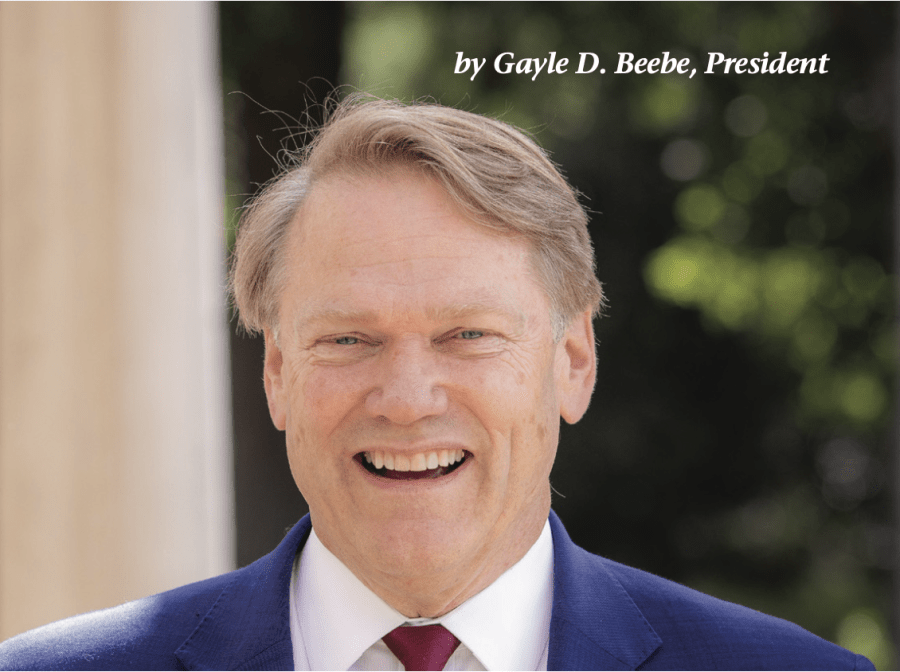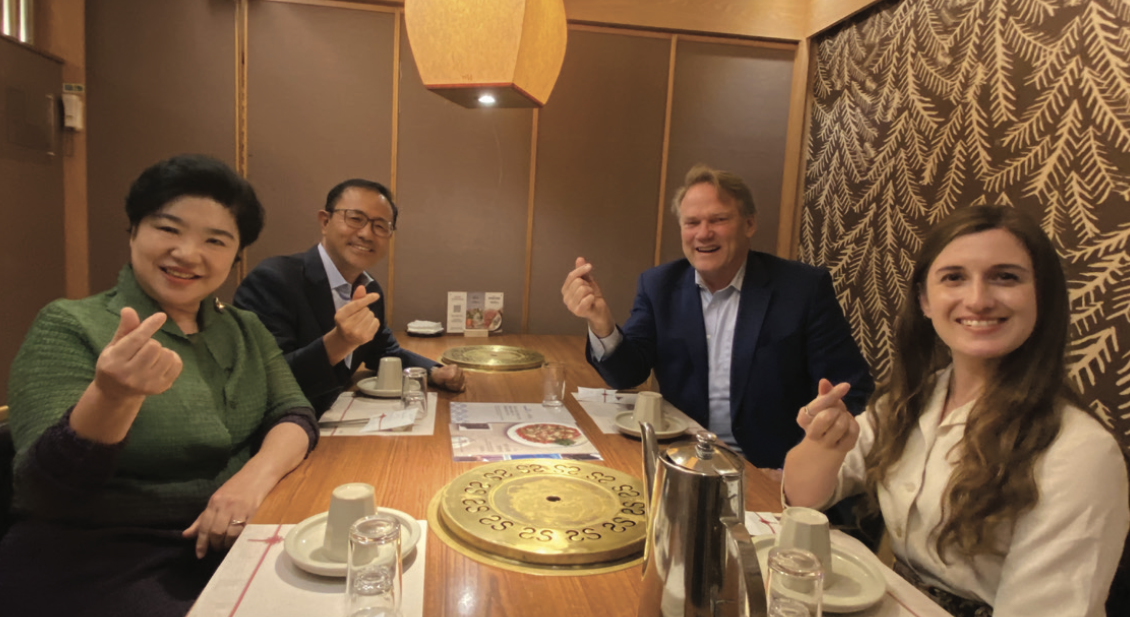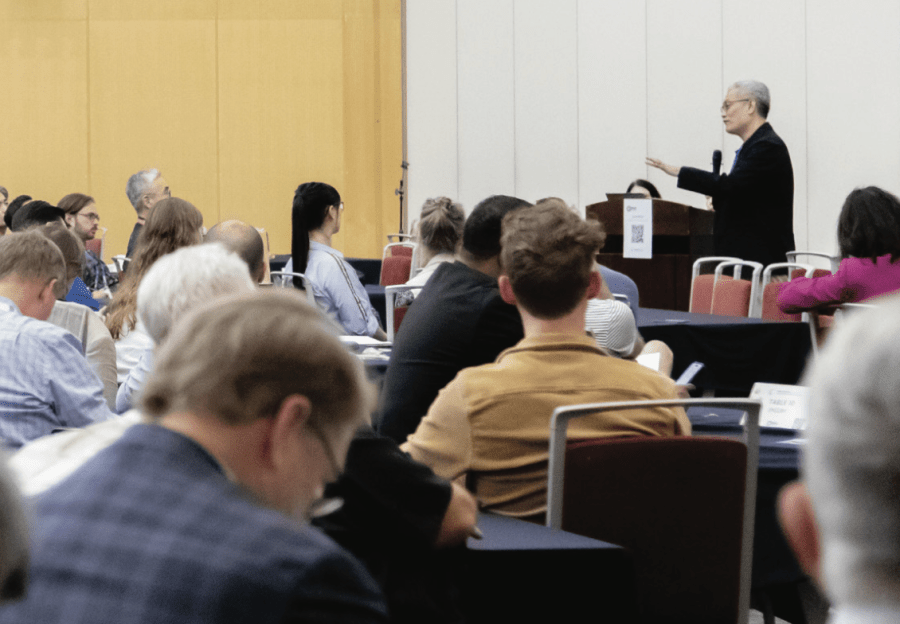LETTER FROM THE PRESIDENT
They Had the Experience, but Missed the Meaning
BY GAYLE D. BEEBE, PRESIDENT

I had the privilege of attending the Lausanne 2024 Congress in Seoul, South Korea, as an invited delegate. During the last week of September, 5,000 delegates representing 220 countries and territories converged on Incheon City for a week of worship, teaching and efforts to understand this branch of the global church. Each day began with 30 minutes of worship, 30 minutes of teaching and 30 minutes of convening in groups of six to converse with delegates from a variety of countries and continents. My table included a South Korean oncologist turned Old Testament scholar, a Hong Kong business-woman, a Nigerian who operates a non-governmental organization (NGO), a delegate from Cypress who works with people migrating from North Africa to the European Union, and a woman who runs a non-profit in Lima, Peru, and Miami. What an amazing array of people gathered around the common cause of joining this part of God’s work in the world.
We spent the afternoons in sessions focused on special topics, including one I attended on the church in North Korea. Evenings featured more worship, teaching and processing. Throughout the conference, we heard amazing stories and personal testimonies. I was spellbound to learn how much is happening in the world that we seldom if ever hear about. Persecuted Christians in Africa, minority Christians in Indonesia, and even majority culture Christians in North America shared their participation in God’s greater work in the world. It left me pondering the realities of life and how often we overlook things — or don’t know how or where to look.
Acts 10 and 11 recounts the wonderful story of Peter bringing the gospel to Cornelius, a Roman centurion, not once, but twice — and these chapters include two conversions. First, Peter must convert to seeing the gospel as God’s intention for all humanity, not just the Jews. In 10:34-35 he says, “God does not show favoritism but accepts from every nation the one who fears him and does what is right.” Then Cornelius converts to a full conviction of belief in Christ. Their encounter leads to greater understanding and awareness of their life with God.
“God does not show favoritism but accepts from every nation the one who fears him and does what is right.” Acts 10:34-35

I gained three insights from my trip to Korea as well as from this passage in Acts. First, the famous T.S. Eliot quote in the title reminds us that we may have experiences we can’t make sense of. We recognize that experience can be a great teacher, but only if it’s adequately and accurately interpreted and understood. We can go through life failing to see our experiences in a wider perspective of meaning and purpose. In 1966, Thomas Kuhn wrote “The Structure of Scientific Revolutions” and coined the phrase “plausibility structures,” or structures of meaning. That’s how we form our understanding of the world. When we have new experiences that fail to fit comfortably within our plausibility structures, we either expand them to incorporate the experiences or our plausibility structures collapse.
A second insight regards the cultures of the world as divine passage-ways, not barriers to human understanding. What Peter saw as a barrier to Cornelius coming to full belief in Christ actually became the way God moved in Peter’s heart to make the invitation of the Gospel universal, open to all people.
The third and final insight comes when we recognize that the vision for what God calls us to do always exceeds any inconvenience we might face. As you read the passage from Acts 10 and 11 and reflect on your insights and experiences, how often has God asked you to inconvenience yourself so you could fulfill a greater purpose? This two-chapter sequence concludes with the recognition that “…even to Gentiles God has
granted repentance that leads to ‘life’ (zoe),” the eternal, uncreated life that originates in God alone.

As I returned to the U.S. and settled back into my life and responsibilities at Westmont, I began pondering three leading questions:
1. What barriers to understanding need to fall so our work at Westmont can become an effective instrument for God’s greater purposes in the world?
2. What insights and experiences have we chosen to ignore?
3. Does our vision for what God asks us to do in and through our work at Westmont exceed the inconvenience?
In every case, the answers we offer and the contributions we make will be our way of living out God’s work in the world as well as the pleasure we find in joining our purpose in life with God’s greater goals for all humanity.
Seoul 2024 will live on in my mind and imagination for years to come. I’m grateful to have participated and even more grateful to return and sense every day the amazing and important work we do at Westmont. Thank you for joining me in it.